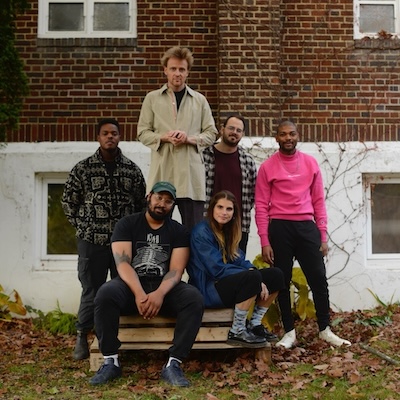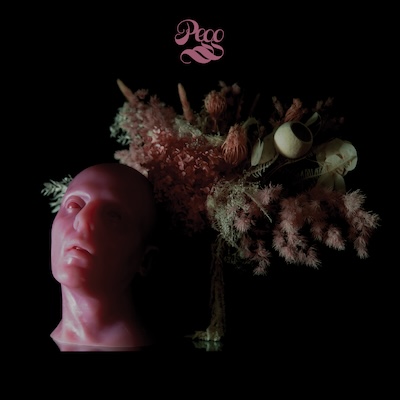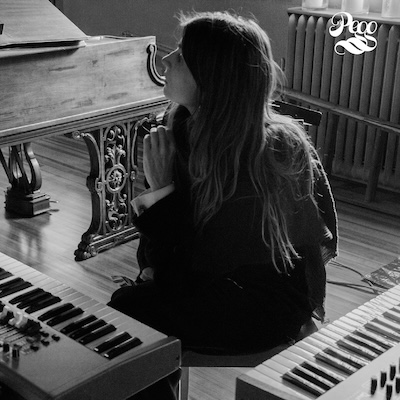Info

Info
Management:
Brassland
Publicity:
Tom Avis | Terrorbird
Radio:
Ronda Chollock | Insubordinate Media (USA - AAA)
Radio:
Shil Patel | Tiger Bomb (USA - college)
Radio:
Nick Carling | Farewell Transmission (United Kingdom)
Music
Info
Management:
Brassland
Publicity:
Tom Avis | Terrorbird
Radio:
Ronda Chollock | Insubordinate Media (USA - AAA)
Radio:
Shil Patel | Tiger Bomb (USA - college)
Radio:
Nick Carling | Farewell Transmission (United Kingdom)
Notes
THE PROJECT
The self-titled debut album from Pegg is the work of a reclusive savant, briefly surfacing to unite like-minded musicians in a laboratory-slash-funhouse of his own invention. While possible to categorize as pop music, Pegg contains multitudes. Kinetic rhythms and elegant balladry co-exist. While the distinct collaborative nature is not only important, but crucial, the contents are quite personal. Spiritual and familial identity is inspected, reckoned with, celebrated, and danced to. As the ringleader of this project wants you to know: “Pegg is just as advertised on the cover—a model of my head leaving a trail of flowers in its wake.”
The person at Pegg’s center is Xander Duell, a long time participant in the kind of NYC music communities that fly under the radar locally but made connections across the globe. Previously under different identities, he’s released music on Mexican Summer and INGRID, the Swedish collective founded by Lykke Li, Andrew Wyatt, and Peter Bjorn and John. He’s shared stages and recording studios with everyone from Amen Dunes to Weyes Blood, from Modest Mouse to the legendary Van Dyke Parks (whose ornate orchestrations grace Pegg’s “No Dice”).
Seeking to reboot his creative practice, Duell first created a series of improvisational recordings with Jon Bap aka Maurice II—a quietly influential, experimental R&B enigma known for his soundtrack work on the A24 / HBO series Random Acts of Flyness. Where in the past he might go back to his home studio with those recordings to work in solitude, the Xander of today leaned into collaboration, teaming up with bassist/vocalist Blake Fusilier to build on those initial grooves and ideas.
Together they assembled an underground supergroup of players to complete the recordings, enlisting pianist/guitarist/vocalist Teeny Lieberson (Sharon Van Etten, Here We Go Magic, TEEN), drummer/pianist Brandon Buz Donald (Standing on the Corner, Kelela, ex-L’Rain), and vocalist Arone Dyer (Buke and Gase). With acclaimed artist Bartees Strange joining on production duties, the Pegg caravan relocated Upstate New York to a space known as the River Church to record. Explains Duell: “It’s a big boomy room like most churches, but it’s not enormous; rather it’s a small regional church so the cavernous effect actually has a distinct stopping point. Its natural reverb gave a really unique and vibey sound to the songs we created up there.”
THE SONGS
It’s Buz’s voice that opens Pegg with “Tilt Shift,” a minute-long incantation written by Duell as a manifesto to his players as much as himself, a request “To focus on the dream / To communicate its never-ending nature.”
On the combustible “Radiothon,” Pegg blossoms from the collective hivemind like the flowers on the album art. Fusilier commands the listener to “Take time to get your mind right” while Duell delivers verses with Bowiesque bravado. Fusilier and Duell duet over lead single “Geronimo,” equally indebted to Arthur Lee and John Cale but with the breezy yet progressive vibe of contemporaries like Connan Mockasin or Khruangbin.
After hearing Duell’s voice memo demo of “Sweetheart” near the end of their sessions, Bartees Strange proclaimed “Where the fuck has this been?” and tracked the desperately romantic two minute synth-pop bop with a chorus of depraved horns.
In its second half, Pegg shifts downtempo, moving further down the nervous system. Duell’s recently deceased mother—his connection to Judaism—is memorialized on the gentle, piano-driven “Cancer Alley.” “Davey” chronicles the Nazi heel-turn and inevitable poetic justice delivered to the character in the song's title over a percolating drum machine. Like “Tilt Shift,” Duell describes writing the lyrics of Scott Walker-like ballad “Via Dolorosa” in a stream-of-consciousness trance. Says Duell: “I had to go back later to figure out what the words meant and what the chords were. It includes the word ‘shibboleth’ which I did not consciously know when I wrote the song. ‘Via Dolorosa’ uses it correctly, so it really added to the feeling like I channeled this one rather than created it.”
Psychedelic sendoff “Lying to Myself” caps off this unpredictable, kaleidoscopic record. Like the rest of Pegg, it balances childlike wonder with lyrics that careen between cerebral and emotional. It’s a model of its eccentric creator’s head, now on display for the world to examine with a little help from his trusted collaborators.



